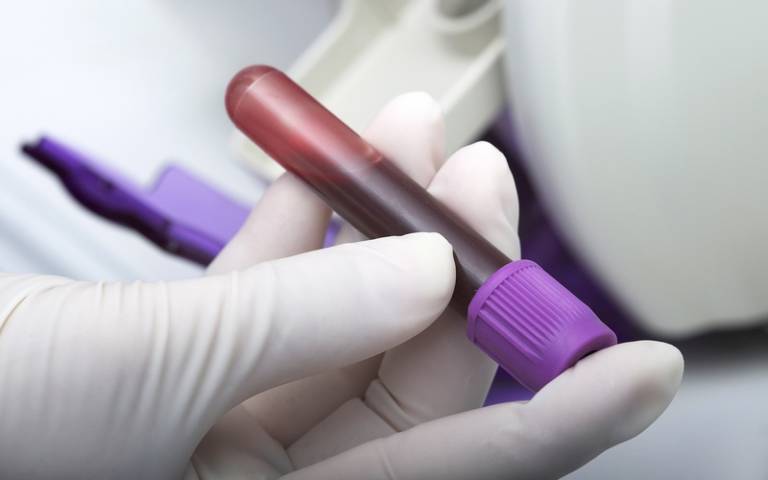Ground-breaking gene therapies developed at UCL could put a stop to haemophilia
A pioneering treatment, which allows people with haemophilia to produce the vital blood-clotting protein they lack, has reached Phase III trials and will hopefully provide a cure.

8 October 2020
Gene therapy is a novel treatment approach that shows promise for a range of inherited disorders including haemophilia – a condition that occurs when a single protein involved in blood-clotting is missing, resulting in uncontrolled bleeding at the slightest injury.
Haemophilia affects more than 1 in 3,300 people worldwide. In resource-poor countries it often remains undiagnosed and can lead to premature death.
Normally when a blood vessel breaks, small blood components called platelets clump and work with a series of thirteen (XIII) protein factors to form a clot over the injury. But in people with haemophilia A, factor VIII is missing and in haemophilia B factor IX is missing.
To replace the missing proteins, Professor Amit Nathwani (UCL Cancer Institute), and colleague in the institute’s Department of Haematology Professor Edward Tuddenham spent a decade developing gene therapy treatments in collaboration with researchers at St Jude's Children's Research Hospital in Tennessee, USA.
The team uses a harmless virus to deliver corrected copies of the defective clotting factor gene to cells in the body in a single injection. The cells can then manufacture the correct form of the protein allowing blood to clot.
““This single-dose treatment replaces the need for multiple injections and dramatically reduces the cost of treatment.”
“This single-dose treatment replaces the need for multiple injections and dramatically reduces the cost of treatment,” explains Professor Nathwani.
This successful use of gene therapy for haemophilia A follows a similar trial in people with haemophilia B a decade ago, when Professor Nathwani’s team replaced the missing Factor ten (IX) protein using a single administration of gene therapy. The majority of these patients have since been free of spontaneous bleeding episodes.
Trials of the Haemophilia A gene therapy show a single dose is enough to stop uncontrolled bleeding in patients for more than three years without any long-term toxicity.
“These ‘one-dose-and-done’ gene therapies provide a potentially life-changing treatment for people with haemophilia,” emphasises Professor Nathwani, who has founded a company called Freeline Therapeutics to commercialise the technology.
“The trial results provide inspiration and hope for treating a range of single-gene disorders that currently lack effective treatment," he adds.
 Close
Close


